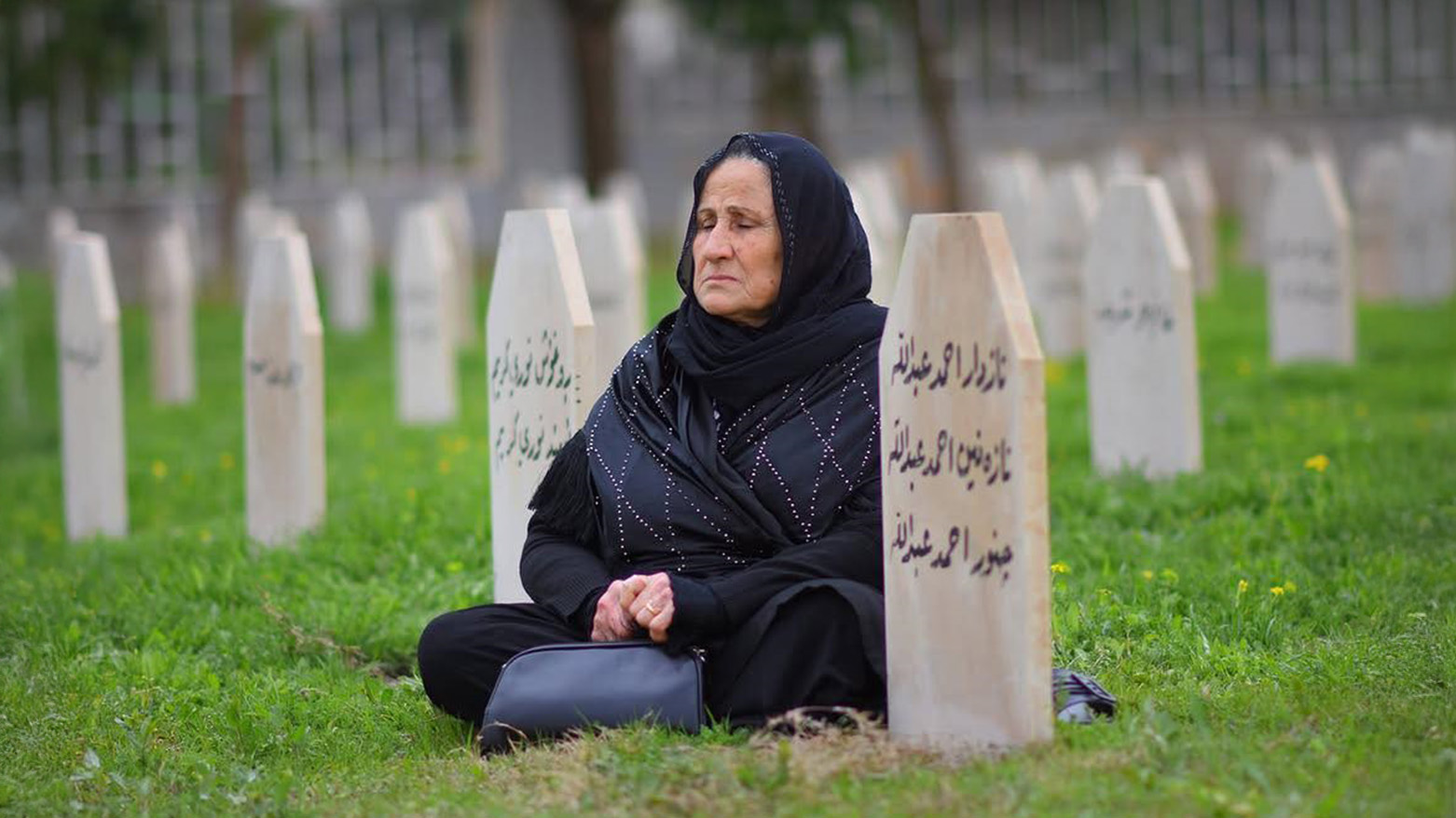‘Their Sacrifice Keeps Us Strong’: PM Barzani Honors Victims of Balisan Chemical Massacre
The Balisan Valley's chemical attack is a painful reminder that Kurdish communities across Iraq were systematically targeted with weapons of mass destruction long before Halabja.

ERBIL (Kurdistan24) – Kurdistan Region Prime Minister Masrour Barzani on Tuesday commemorated the 38th anniversary of the chemical attacks on the Kurdish villages of Balisan, Sheikh Wasanan, and Khoshnawati Valley, describing the victims’ sacrifice as a symbol of resilience and strength for the Kurdish people.
"Today marks 38 years since the chemical massacre of Balisan, Sheikh Wasanan, and Khoshnawati Valley. Their sacrifice continues to keep us strong and resilient," Barzani posted on his official X account.
Today marks 38 years since the chemical massacre of Balisan, Sheikh Wasanan, and Khoshnawati Valley.
— Masrour Barzani (@masrourbarzani) April 16, 2025
Their sacrifice continues to keep us strong and resilient. pic.twitter.com/1Q81ZC2eI6
The Balisan Valley chemical attack, carried out by Saddam Hussein’s Ba’athist regime on April 16, 1987, was one of the early instances of chemical warfare used against the Kurdish population in Iraq. The villages were bombarded with deadly chemical bombs, including nerve gas and mustard gas, as part of a systematic campaign to silence Kurdish opposition and erase their identity.
A Legacy of Pain and Resistance
The attacks on Balisan, Sheikh Wasanan, and Khoshnawati were part of a broader genocidal operation known as the Anfal Campaign (1986–1989), orchestrated by Ali Hassan al-Majid—widely known as “Chemical Ali”—who was Saddam’s cousin and military commander. Thousands of innocent civilians, including women and children, were either killed instantly or left with lifelong physical and psychological trauma.
While the world is more familiar with the horrific chemical attack on Halabja in 1988, the tragedies of the Balisan Valley are a painful reminder that Kurdish communities across Iraq were systematically targeted with weapons of mass destruction long before Halabja. Entire villages were decimated, families torn apart, and survivors forced to relive the horrors in silence under the regime’s brutality.
The Balisan attack was notable not only for its brutality but also for how it served as a testing ground for chemical weapons that would later be deployed on a wider scale. Survivors recalled a sudden drop in air pressure followed by the smell of apples—an ominous sign of nerve agents being released. Many died within minutes; others succumbed to injuries days later.
Seeking Justice and International Recognition
Despite growing evidence and survivor testimonies, accountability for the chemical genocide against the Kurds has remained limited. In recent years, the Kurdistan Regional Government has intensified efforts to secure international recognition of these atrocities as acts of genocide and to support survivors through documentation, memorialization, and legal advocacy.
Prime Minister Barzani’s post serves not only as a remembrance but also as a call to the global community to never forget the crimes committed against the Kurdish people. “Their sacrifice continues to keep us strong and resilient,” he wrote—an affirmation that the memory of the fallen fuels the continued pursuit of justice, dignity, and self-determination.
As the Kurdistan Region reflects on this somber anniversary, the people of Balisan, Sheikh Wasanan, and Khoshnawati stand as enduring symbols of Kurdish endurance in the face of unspeakable cruelty.
